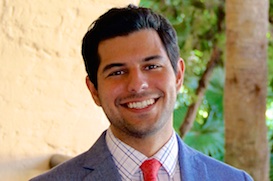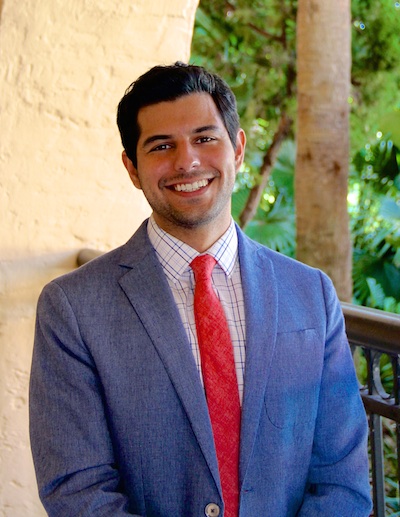How do we protect our children?

Law student advocates for reform in cases of abuse.

Think back to your childhood, and your clearest memories of that time. Maybe you recall details of a family vacation, your best friend, a move that took you to a new city or a new school.
Perhaps what you recall most is a terrible tragedy that changed your life forever. Now imagine preserving that childhood memory on your smart phone.
An article co-authored by second-year Stetson Law student Sean Carlo Lopez argues that the legislature should provide an exception to the rule in cases of abuse in which the child victim’s only defense may be a recording. Lopez co-authored “McDade: A Search for Justice in the Face of the Inadmissibility of Secretly Taped Conversations” as an undergraduate student with University of Central Florida professor Carol Bast. The McDade case recently made headlines in May.
In 2011, a 16-year-old girl confronted her childhood abuser, the stepfather whom she said sexually assaulted her for six years. Her evidence against the man: a recording she made of her abuser. Her stepfather was sent away to prison for a double life sentence, but later granted a new trial because the evidence against him was deemed inadmissible by the Florida Supreme Court.
Chapter 934 of the Florida Statutes prohibits the recording and disclosure of a private conversation without two-party consent. The Florida Supreme Court overturned the trial court and ruled that the evidence should have been suppressed in line with the plain language of the statute. Richard McDade was acquitted on May 21 at the retrial.
Florida Governor Rick Scott signed a bill into effect in July allowing children to secretly tape their rapists.
“It is unfortunate that it took such a crime to carve the way for reform,” Lopez said. “It remains unconscionable to allow a child rapist to go free and clear when an actual account of his transgressions exists to prove his guilt.”
However, the evidence, collected before the governor signed the bill, was illegal. The woman’s childhood rapist remains free.
“While the future holds a glimmer of hope for the victims of child rape, the legal system has failed to provide the victim with any form of justice, and that is completely unacceptable,” said Lopez. “This should be a lesson for the legislature to construe complicated statutes such as Chapter 934 more broadly in order to allow the judicial system to administer actual justice.”
“Though the added exemption is a step forward, Florida’s laws are still deficient,” said Lopez. “Florida is one of a handful of states that requires the two-party consent rule. Such a rule is archaic in today’s culture, an era of smart phone technology in which the average person has the capability to record the most intimate details of their life.”
“We should not leave such protections to chance or the interpretations of a few judges,” Lopez said, who recommends reform in line with the majority of the states. “The federal government has recognized that access to recording technology draws a very fine line between what should be deemed private and public. Applying the one-party consent rule to oral communications would be in line with the majority of the states and federal government.”
The article will be published in the Criminal Law Bulletin in the fall of 2016.
Visit Stetson University College of Law.
by Brandi Palmer



